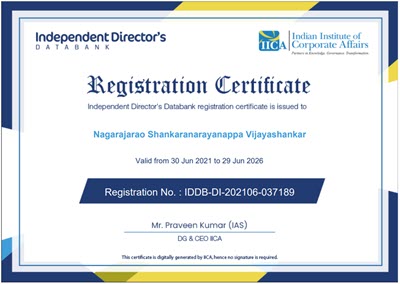The article published yesterday about “Digital Marketing” and its future in the society increasingly becoming sensitive to Privacy issues has evoked a few responses from other professionals.
One such response worth noting is the linked in article “Neuro Data, Capitalism & Privacy Regulation” by Deepti Bhatia. (Incidentally Deepti is the President of Delhi Chapter of FDPPI).
In this article, Deepti raises many issues requiring further debate. We shall take one issue issue raised in this article for discussion today and that is the “Apple Patent on a Bio sensor embedded air pods”.
We have discussed “Neuro Rights” extensively in this website in the past and highlighted how Brain Computer interfaces, Humanoid Robots and CyBorgs with AI could transform the society in directions that may not be desirable. In such discussions, we have factored the raise of technology in neuro science which can read brain waves either through electrodes fixed on a skull cap or a chip embedded surgically inside the human skull.

In using such devices there was a “Technology Barrier” that would restrict the wide use of such technologies.
However Technology has now progressed alarmingly with Apple applying their skills to develop a wearable which can perhaps read brain waves and claiming a patent.
The US patent number US20230225659 titled “Biosignal sensing device using dynamic selection of electrodes” is a dangerous patent that makes the common discussions on “Deceptive Privacy Invasion techniques through Dark Pattern” look absolutely childish.
This device is being designed as “Airpods” looking just like normal airpods and hiding all the electrodes that make the earlier devices clumsy.
 |  |
Further the Apple device can be used for deceptive marketing since it can capture signals such as brain waves, muscle movements etc. It can be much more than the wearables like the Watch and interact directly with the brain activity to read the “Neuro-data” generated by the humans.
The background of the invention states:
Brain activity can be monitored using electrodes placed on the scalp of a user. The electrodes may in some cases be placed inside or around the outer ear of the user. Measuring of the brain activity using electrodes placed in or around the outer ear may be preferred due to benefits such as reduced device mobility and decreased visibility of the electrodes when compared to other devices that require electrodes to be placed on visible areas around the scalp of the user…”
In this context the invention is designed as a wearable where the electrodes are invisible. Hence this is eminently suited for deceptive marketing and taking over of human brain activity through remote influence exercised on the human brain.
Imagine that a person wearing this airpod is taking a buying decision. The airpod server knows the buying intention and can broadcast it to vendors who can instantly bid for neuro messages to be sent to influence the purchase in favour of one supplier over the other. This would be like the dynamic advertisement that would be displayed when you search for a product on google.
The society should recognize the potential for misuse of this technology and take steps that such technologies are killed in the bud.
I urge Indian law makers and particularly Mr Rajeev Chandrashekar (expected to be back as IT Minister) to ensure that this AI device should be banned for sale in India or made subject to very strict licensing.
The IPR authorities should also re-consider if they should provide IPR protection to such devices.
In most of the new Privacy laws, IPR is always respected and granted an exemption. But the time has come to put reigns on IPR through other laws. Forget the international treaties on IPR, it is time to reign in IPR laws in preference to laws that are meant to protect the human society.
Let us remember that Technology can be disruptive but not destructive.
Naavi
Refer also:











